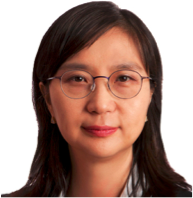Morning: Keynote talks (Ballroom)
09:10 - 09:30
Opening Remarks
by Ron Brachman, director of Jacobs Technion-Cornell Institute at Cornell Tech
09:30 - 10:15
Verification and Validation of AI Software
by Peter Norvig, Director of Research, Google
10:15 - 11:00
Cognitive Computing: From breakthroughs in the lab to applications on the field
by Guruduth Banavar, Chief Science Officer, Cognitive Computing, IBM Research
11:00 - 11:30 Coffee Break
11:30 - 12:30
AI and Robotics Research in Sony: Past, Present, and Future
by Hiroaki Kitano, President & CEO SONY Computer Science Laboratories
Masahiro Fujita, VP of System R&D Group, Sony Corp.
Peter Stone, Founder and President, COGITAI. Professor UoT (Austin).
12:30 - 01:00
New Wave KRR: Rulelog-based Deep Reasoning with NLP for Financial Regulatory Compliance and More
By Benjamin Grosof, Founder and CEO Coherent Knowledge.
Afternoon: Executive talks (Sutton Complex)
02:00 - 02:30
IoT Intelligence
By Jihie Kim, VP Software R&D, Samsung
02:30 - 03:00
Industrial Applications of Smart Machine Technology
By By Pinpin Zhu, President & CTO of Xiaoi Robot
03:00 - 03:30 Coffee Break
03:30 - 04:30
Panel : The Business of AI, 2015-2025
Verification and Validation of AI Software
by Peter Norvig, Director of Research, Google
ABSTRACT: Building correct software is hard. Incorporating AI into software makes some things easier, and
introduces a new set of problems to tackle. This talk examines some of the issues.
Cognitive Computing: From breakthroughs in the lab to applications on the field
By Guruduth Banavar, Chief Science Officer, Cognitive Computing, IBM Research
ABSTRACT: In the last decade, the availability of massive amounts of new data, the development of new machine learning
technologies, and the availability of scalable computing infrastructure, have given rise to a new class of computing
systems. These “Cognitive Systems” learn from data, reason from models, and interact naturally with us, to perform
complex tasks better than either humans or machines can do by themselves. These tasks range from answering questions
conversationally to extracting knowledge for discovering insights to evaluating options for difficult decisions.
These cognitive systems are designed to create new partnerships between people and machines to augment and scale
human expertise in every industry, from healthcare to financial services to education. This talk will provide an
overview of cognitive computing, the technology breakthroughs that are enabling this trend, and the practical
applications of this technology that are transforming every industry.
New Wave KRR: Rulelog-based Deep Reasoning with NLP for Financial Regulatory Compliance and More
By Benjamin Grosof, Founder and CEO Coherent Knowledge
ABSTRACT:
Machine learning (ML) is all the rage in industry as well as research. However, the other core area of AI, knowledge representation and reasoning (KRR), is rising once again. Rulelog is a recent fundamental research advance in fully semantic rules and deep reasoning that overcomes several key weaknesses that have limited AI ever since the 1980s. It extends database logic with very flexible meta expressiveness yet querying stays worst-case polynomial-time. It expressively features higher-order formulas, defeasibility (exceptions), restraint bounded rationality, provenance, and probabilistic/weighted uncertainty. This takes semantic tech to a new level, tightly combines with natural language processing (NLP), and complements ML.
We survey the applications to date of Rulelog in decision automation and associated analytics, illustrating with a case study demonstration in financial regulatory/policy compliance. Two key benefits are high accuracy and fully detailed explanations that are quite understandable by non-IT subject matter experts. Other benefits are greater scope of task automation, lower cost, and greater agility both operationally and strategically. We roadmap the many potential future applications of Rulelog, in realms such as natural language understanding and HCI, defense intelligence, accounting, health care, social media, e-commerce, online education, and games. Rulelog shines on complex commonly-arising kinds of knowledge such as terminology/ontology mappings, regulations, contracts, policies, and causal pathways.
IoT Intelligence
By Jihie Kim, VP Software R&D, Samsung
ABSTRACT:
IoT applications such as smart home and health are attracting a significant amount of attention.
Our goal is to generate an intelligence platform that makes use of various sensor data and generates novel
user values. We discuss how intelligence techniques including data analytics, natural language processing,
and automated control of things can improve IoT experiences.
Industrial Applications of Smart Machine Technology
By Pinpin Zhu, President & CTO of Xiaoi Robot
ABSTRACT:
1. Industrial application of smart machine in China. Typical use cases: smart machine technology helps China Construction Bank to reduce call center staff by 6000.Industries: financial industry, telecommunications, e-commerce, e-government; Application type: intelligent customer service, intelligent marketing, intelligent knowledge base, smart devices; Features: omni-channel integration; support multi-media &multi-interactivity interface.
2. What enables vast industrial application of smart machine technology in China?
The increasing pervasiveness of the Internet, especially mobile internet, requires organizations to provide omni-channel interactive communications to reach customers anywhere, at any time
As China’s demography is shifting towards a more aged population, labor-intensive industries face a sharp increase in labor cost. New technologies are required to transform traditional service approaches.
Call centers in China are bypassing several developmental and evolutionary stages of their western counterparts, and are jumping on the fast development wagon of innovative intelligent services on the Internet as well as on the mobile internet.
Xiaoi Robot spearheaded the industrialization of smart machine technology in China over a decade ago, and has established virtuous cycles of technology-product-industrialization, which drives the wide-ranging industrial adoption of smart machine technology in China.
3. The future of smart machine technology: from enterprises to customers
Xiaoi’s iBot 10 architecture provides enterprises with a “brain”, using knowledge representation and understanding obtained through training of large amount of collected data over the years, enabling businesses to offer comprehensive intelligent service and enhancing their marketing capabilities.
iBot OS, Integrates various cutting-edge smart machine technologies, powers the intelligent interaction, service and marketing capabilities of smart devices with a “robotic brain”.
Panel: The business of AI
Moderator: Rosario Uceda-Sosa, Industry Day Chair
 Guruduth Banavar
Guruduth Banavar, Chief Science Officer, Cognitive Computing, IBM Research
 Masahiro Fujita
Masahiro Fujita, VP of System R&D Group, SONY
 Benjamin Grosof
Benjamin Grosof, Founder & CEO, Coherent Knowledge
 Jihie Kim
Jihie Kim, VP Software R&D, Samsung
 Hiroaki Kitano
Hiroaki Kitano, President & CEO SONY Computer Science Laboratories
 Peter Norvig
Peter Norvig, Director of Research, Google
 Peter Stone
Peter Stone, Founder & President COGITAI
 Pinpin Zhu
Pinpin Zhu, President & CTO of Xiaoi Robot
How to participate? Registration for the Industry Day is already included with
the general IJCAI Conference registration, but if you are interested in
attending the Industry Day Only, you can choose that option in the
registration system
https://registration.ijcai.org for a fee of $180.
 Guruduth Banavar, Chief Science Officer, Cognitive Computing, IBM Research
Guruduth Banavar, Chief Science Officer, Cognitive Computing, IBM Research
 Masahiro Fujita, VP of System R&D Group, SONY
Masahiro Fujita, VP of System R&D Group, SONY
 Benjamin Grosof, Founder & CEO, Coherent Knowledge
Benjamin Grosof, Founder & CEO, Coherent Knowledge
 Jihie Kim, VP Software R&D, Samsung
Jihie Kim, VP Software R&D, Samsung
 Hiroaki Kitano, President & CEO SONY Computer Science Laboratories
Hiroaki Kitano, President & CEO SONY Computer Science Laboratories
 Peter Norvig, Director of Research, Google
Peter Norvig, Director of Research, Google
 Peter Stone, Founder & President COGITAI
Peter Stone, Founder & President COGITAI
 Pinpin Zhu, President & CTO of Xiaoi Robot
Pinpin Zhu, President & CTO of Xiaoi Robot